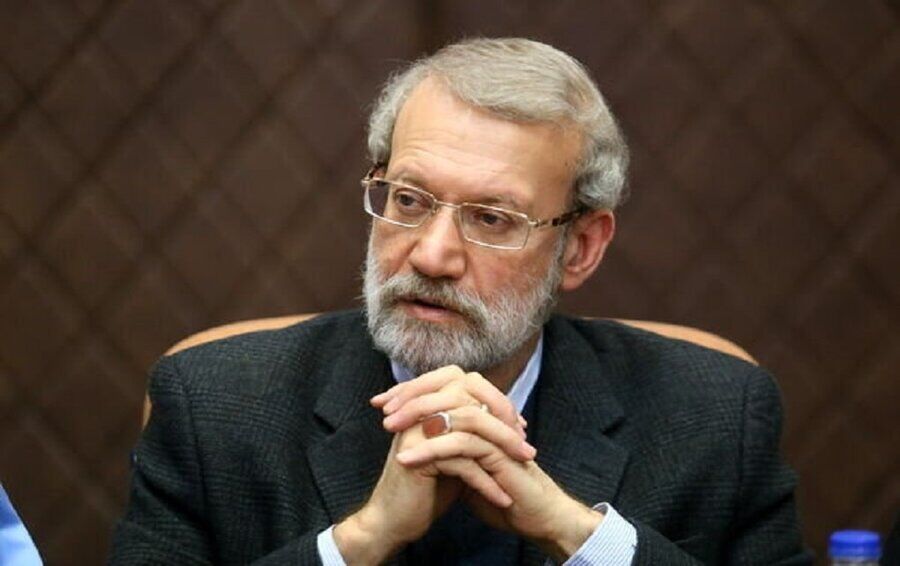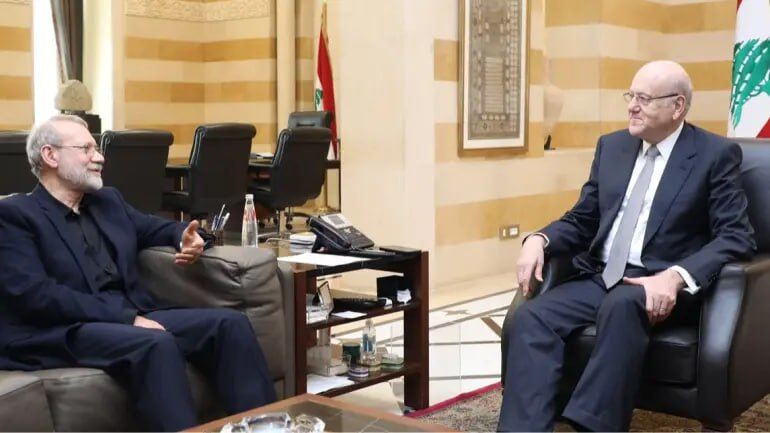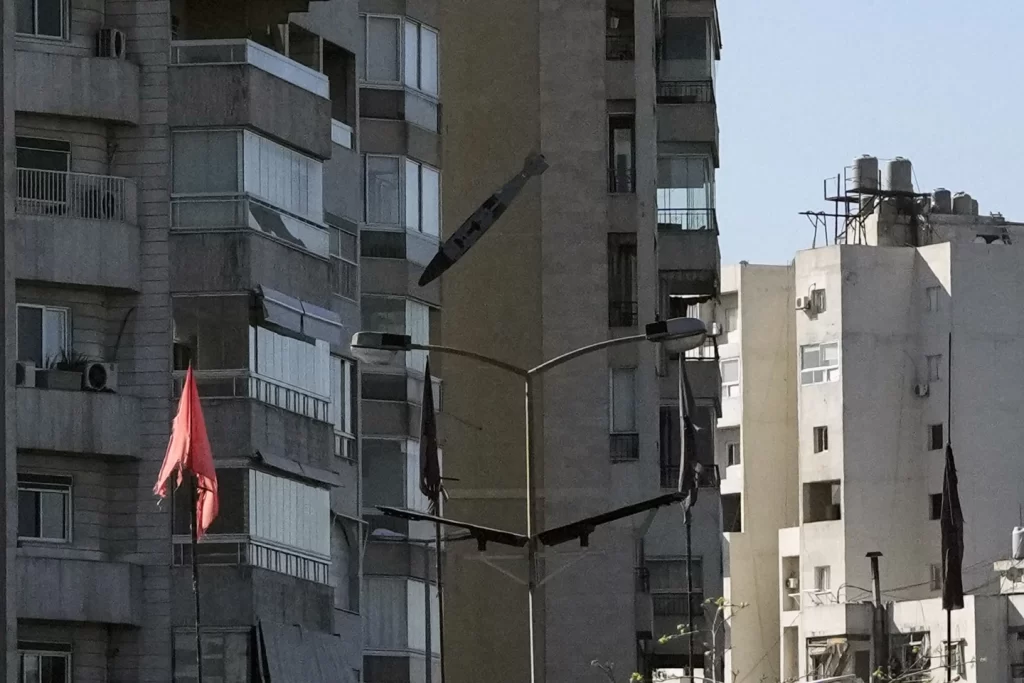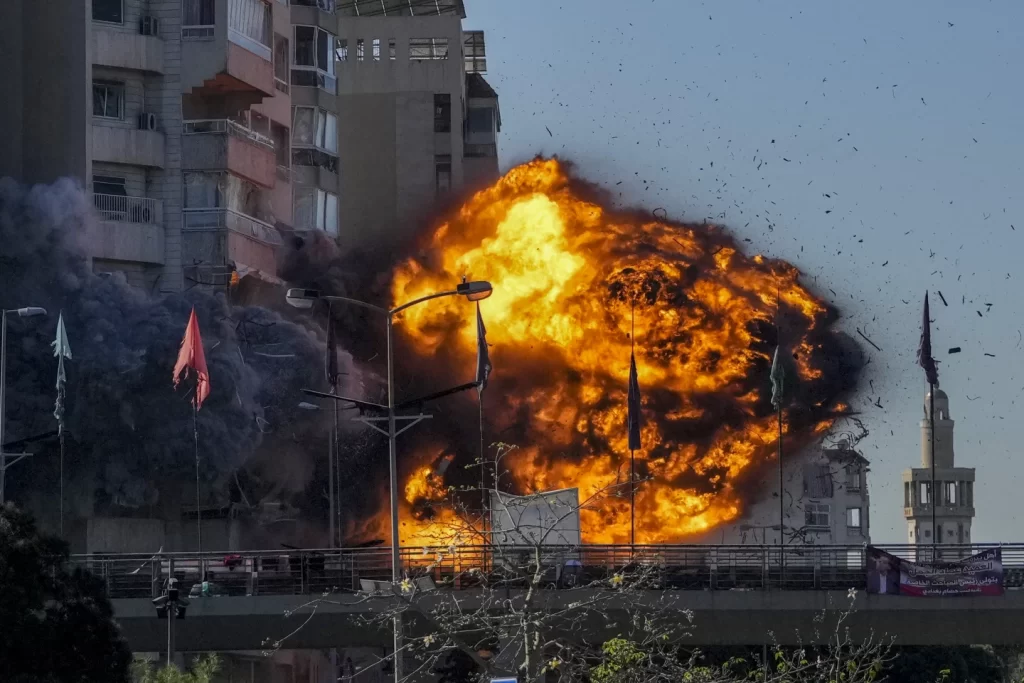A senior Iranian official met with Lebanese leaders Friday to discuss the ongoing Israel-Hezbollah conflict, as U.S. diplomatic efforts intensified to broker a cease-fire deal amid renewed Israeli airstrikes on Beirut’s outskirts.

Ali Larijani, adviser to Iran’s Supreme Leader Ali Khamenei, arrived in Beirut as Israel launched a fresh aerial attack on the capital’s southeastern edge. An Associated Press photographer captured the moment an apparent Israeli bomb struck an 11-story residential building in the Tayouneh area, several kilometers from central Beirut. The Israeli military had warned of the strike, claiming the target was a Hezbollah facility.
U.S. diplomatic efforts to end the fighting have accelerated, with Ambassador Lisa Johnson reportedly presenting a draft cease-fire proposal to Parliament Speaker Nabih Berri, who represents Hezbollah in the talks. A Lebanese official confirmed Johnson’s meeting with Berri but declined to comment on the alleged draft, speaking on condition of anonymity due to the sensitive nature of the negotiations.

Larijani’s visit, following talks with Syrian President Bashar Assad Thursday, underscores Iran’s deep involvement in the regional conflict. Iran’s embassy in Beirut stated that during meetings with Lebanese leaders, Larijani affirmed Tehran’s support for Lebanon’s “government, army and resistance,” referring to Hezbollah, which Iran has long armed and funded.
The escalating diplomatic activity comes as the United Nations Security Council’s elected members circulated a draft resolution demanding an immediate cease-fire in Gaza and the release of remaining hostages held by Hamas. The U.S. position, as Israel’s closest ally, will be crucial to the resolution’s adoption.

The conflict has extracted a heavy toll since Hezbollah began firing into Israel on October 8, 2023, in solidarity with Hamas following its attack on Israel. Lebanon’s Health Ministry reports more than 3,200 deaths and 14,000 injuries in Lebanon, while the World Bank estimates $8.5 billion in physical damage and economic losses to the country.
The broader regional conflict erupted after Hamas’s October 7 attack on Israel killed approximately 1,200 people and saw 250 taken hostage. Israel’s subsequent military response in Gaza has resulted in more than 43,000 deaths, according to Palestinian health officials, who note that more than half of the casualties are women and children but don’t distinguish between civilians and combatants.

The UN Security Council’s draft resolution expresses “deep alarm over the ongoing catastrophic humanitarian situation in Gaza,” citing inadequate healthcare services and risk of famine, particularly in northern areas. It calls for immediate humanitarian access and condemns attacks against civilians and civilian infrastructure.
Iran’s involvement in the negotiations highlights the complex web of regional alliances, with Tehran supporting both Hezbollah and Hamas in their confrontations with Israel. The ongoing diplomatic efforts reflect growing international concern about the conflict’s potential to further destabilize the region.



